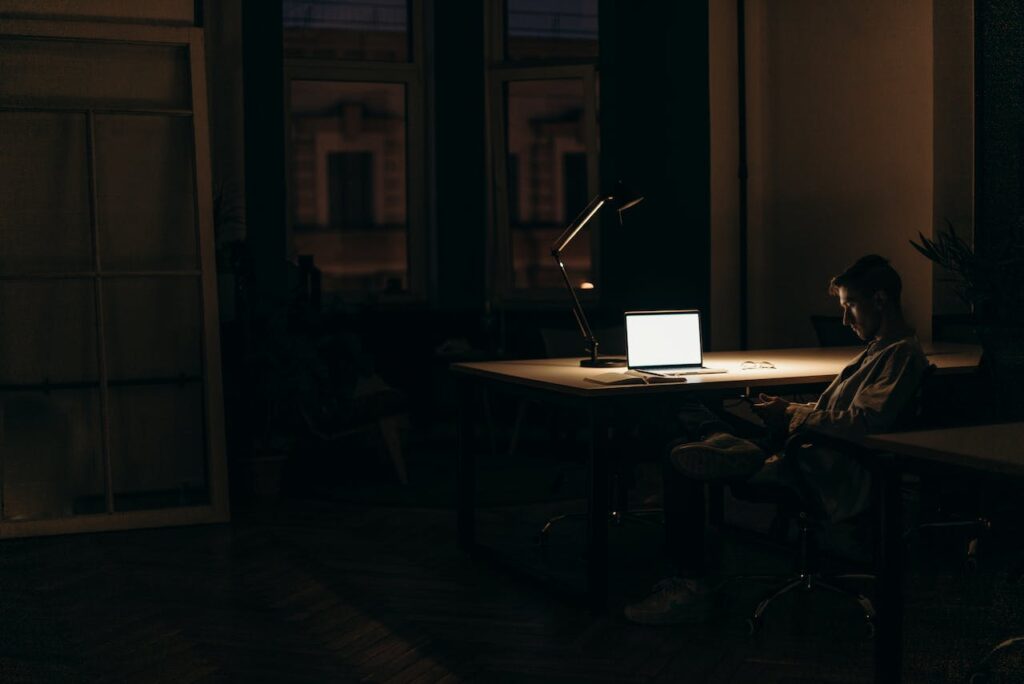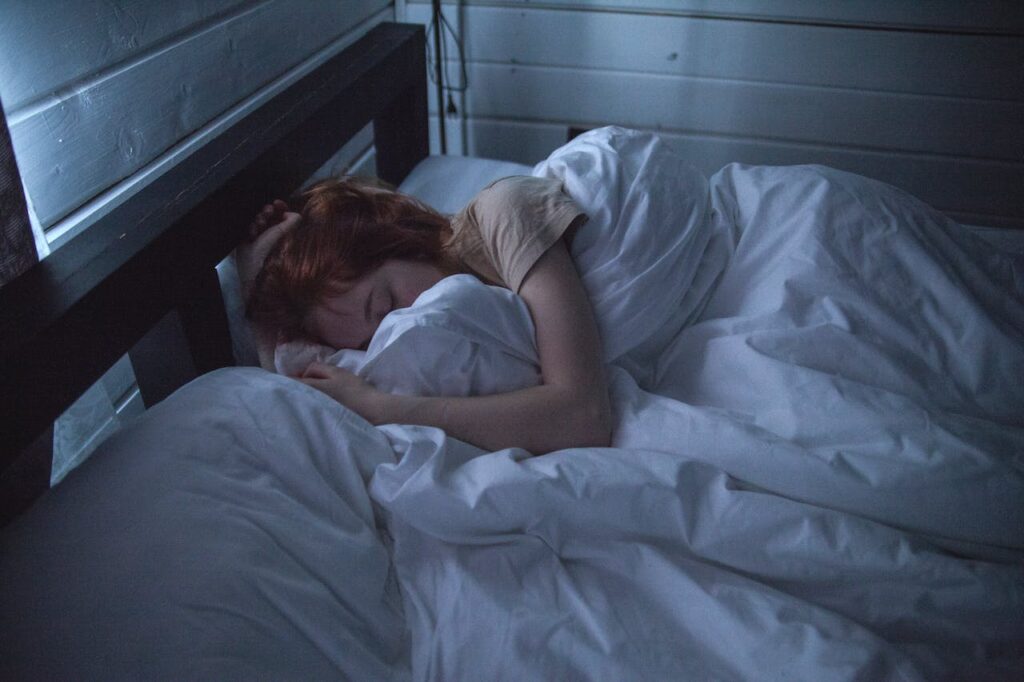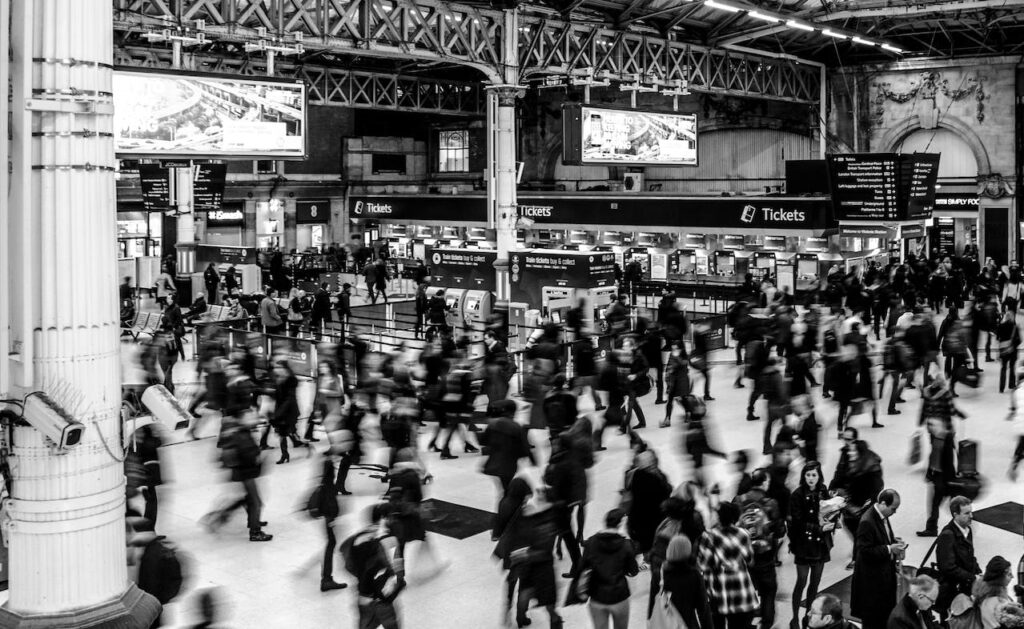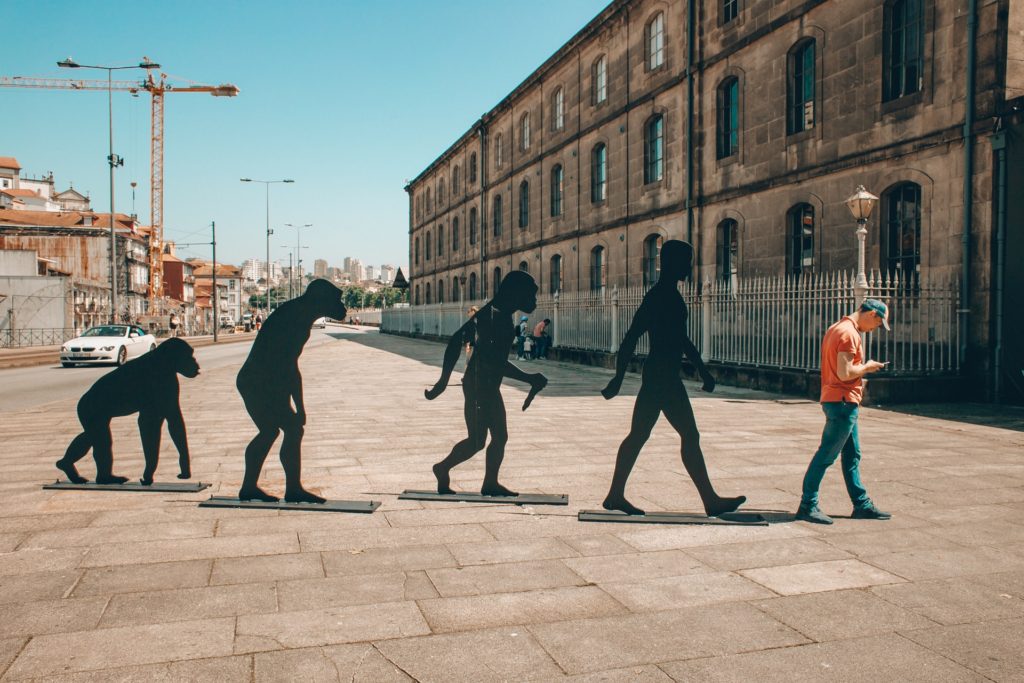
Imagine a world where people no longer needed to sleep, where the 24-hour day was no longer divided into periods of wakefulness and rest. What if we could tap into our full potential without the constraints of fatigue and relaxation. This hypothetical scenario is intriguing and raises a multitude of questions.
In this article, we will explore the implications of a society where humans don’t need sleep and its impact on productivity, work life, nightlife, different industries and much more.
Join us on this fascinating journey into the realm of “What If People Didn’t Need Sleep.”
Let’s first start with brief info about sleep and some sleep data.
Related:
The Biological Basis of Sleep

To comprehend the implications of a sleepless society, we must first understand the biology of sleep. Sleep is a fundamental human need, and it serves various crucial purposes.
In a world where people didn’t need to sleep, the biological basis of sleep would become obsolete.
Currently, the average adult spends about 7-9 hours per day asleep, constituting roughly one-third of their life. These hours are divided into several sleep cycles, including REM (Rapid Eye Movement) and non-REM stages. Circadian rhythms, which dictate when we feel most alert and sleepy, are deeply ingrained in our biology.
So, without need for sleep we would get on average additional 26 years to our awake life.
What would we do with all that “free” time? Let’s see.
Related: Dreams: Here’s Everything You Need To Know
Productivity & Evolution of Work

One of the immediate questions that arise when considering a world without sleep is how productivity would change.
According to Clockify.com, a full-time employee in the United States works 1,892 hours per year, or 36.4 hours per week.
In a sleepless society, these statistics would likely change drastically, with the potential for a 24/7 workforce. Increased productivity hours could lead to a boost in the global economy, but it might also strain the work-life balance and have unintended consequences on family life and personal well-being.
In a sleepless society, the boundaries between work and personal life would blur significantly. With more hours available for work, people might spend more time at their jobs, and businesses could operate around the clock.
While this could lead to increased productivity, it would also raise questions about normality of life, employee burnout, and the need for labor laws that protect workers from excessive working hours.
Perhaps so-called rat race would be even more pronounced in sleepless society. Because currently everything revolves around our sleep cycle and thus sleepless society could become complete dystopia with greedy employers asking employees to work constantly like some kind of slaves.
Related: What If Everyone Stopped Working?
Changes in Living Spaces

In a world where sleep is no longer a necessity, the way we structure our living spaces would undergo a significant transformation. People wouldn’t need beds anymore, nor separate rooms for sleep.
Currently, bedrooms are designed around the concept of rest (and some other intimate things), with comfortable beds, dim lighting, and noise insulation. In a sleepless society, bedrooms would lose their primary function.
People may no longer require large, dedicated sleeping spaces, and homes could be designed with different priorities, such as collaborative workspaces, entertainment centers, or exercise areas. The concept of the traditional bedroom could become obsolete, leading to smaller, multifunctional living spaces.
In that case, perhaps people would dedicate one room in their house (or apartment), solely for love life and love adventures.
Related: Could Humans Ever Hibernate?
The Rise of Nightlife and Social Interactions

With no need for sleep, people would have more spare time to engage in social activities and entertainment. Nightlife would experience a resurgence, and people might become nightbirds, exploring clubs, restaurants, and cultural events during what used to be the “night-time” & „sleep-time“ hours.
Statistics indicate that the pubs, bars, and nightclubs market is projected to grow by USD 27.7 Billion from 2024-2028
In a sleepless society, the nighttime economy could expand even further, potentially boosting local economies and leading to a extremely interesting nightlife culture.
In a sleepless society, people would likely become more active during what was traditionally sleep time.
Clubs, restaurants, and cultural events would extend their hours of operation, catering to a population with an abundance of free time. As a consequence, the nighttime workforce would expand, potentially creating more job opportunities in these sectors.
And surely, nightlife would become more interesting. Perhaps something similar to what we witness in different vampire & immortal movies. People would probably become more free indulging in various nightlife activities.
Because, as we all know, after a good night out, people need a lot of rest to become “normal” again. In sleepless society this wouldn’t be the case and there would be a good possibility that people would party all night long.
Constantly, like in Sodom and Gomorrah.
Wicked, ha? 😊
Social Dynamics

According to the Bureau of Labor Statistics, the average American spends 5.8 hours per day engaged in leisure and sports activities, which includes social interactions.
In a sleepless society, these hours could increase, potentially enhancing social bonds and relationships. However, the absence of distinct day and night cycles might also disrupt social patterns and traditional family life.
In a world without sleep, social dynamics would undergo a profound transformation. People would have more time for leisure activities, socializing, and building stronger connections. The nightlife and entertainment industry, as already mentioned would flourish, and individuals would engage in late-night social gatherings of all kinds.
The Health Paradox

While eliminating sleep might seem like a dream come true, there could be unintended health consequences.
Let’s explore the possible health paradox of a sleepless society, including the impact on physical and mental well-being.
Statistics from the World Health Organization show that globally, more than 280 million people of all ages suffer from depression. In a sleepless society, mental health concerns might decline due to the absence of sleep-related disorders, but new challenges related to overstimulation and stress could emerge.
In a world without sleep, physical health might see improvements due to the absence of sleep-related disorders, but mental health could become a significant concern. With people spending more time working the risk of stress, anxiety, and other mental health issues could increase.
Additionally, many people find sleep as a way of releasing stress and disconnecting from busy world. In sleepless society that could increase mental health related problems as people would have more time to think about all the greed and negativity in the world.
The Ethical Dilemma

A world without sleep raises ethical questions about human rights, quality of life, and personal autonomy.
Let’s delve slightly into the ethical dilemmas surrounding the concept of sleeplessness.
Namely, Universal Declaration of Human Rights recognizes the right to rest and leisure as a fundamental human right. In a sleepless society, this right could be redefined, leading to ethical debates about personal autonomy and freedom of choice. The potential for increased social inequality might also become a prominent ethical concern.
As people in a sleepless society could potentially work longer hours and engage in various activities around the clock, ethical dilemmas concerning worker rights, work-life balance, and personal choice would become more pronounced.
Striking a balance between the benefits of a sleepless society and protecting individuals’ rights and well-being would be a significant ethical challenge.
As mentioned previously – probably everyone can imagine how some people would have to work all days and nights to survive in this hypothetical sleepless scenario.
Today in our society we have many people working 2 shifts (16 hours), having no free time whatsoever. This problem could be even more pronounced if people didn’t sleep at all. Surely, many people would then work for 3 shifts.
Having explored that, let’s examine impact of sleepless society to different industries, starting with Big Pharma.
Impact on the Pharmaceutical Industry

The concept of a sleepless society also has profound implications for the pharmaceutical industry. Currently, the industry invests heavily in research and development to create sleep aids, treatments for sleep disorders, and medications to improve sleep quality.
In a world without sleep, the demand for such products and medications would completely diminish.
Pharmaceutical companies would therefore need to pivot and refocus their efforts on other areas of healthcare. With sleep-related drugs becoming obsolete, resources and expertise could be redirected towards areas such as mental health, cognitive enhancement, or therapies for conditions unrelated to sleep.
The Food Industry and Changing Eating Habits

One of the intriguing consequences of a sleepless society would be the impact on the food industry. With more waking hours available, people would require increased sustenance to fuel their continuous activity.
Currently, most people consume meals based on distinct breakfast, lunch, and dinner routines, aligned with their sleep-wake cycles. In a sleepless society, these traditional eating patterns might change, with more frequent meals and snacks to sustain individuals throughout the day and night. This would create a significant shift in food production and consumption.
The food industry would need to adapt to the new demands of a sleepless society. The demand for 24/7 dining options, including restaurants, cafes, and food delivery services, would soar.
Additionally, there would be a need for nutritionally balanced, convenient foods that cater to the dietary requirements of individuals who no longer have fixed meal schedules. The development of these new food products and services would present both opportunities and challenges for the food industry.
Related: How Propaganda Influences Our Food Choices
Evolutionary Implications of a Sleepless Society

An intriguing question that arises is whether humans would evolve differently in a world where sleep is unnecessary. The absence of sleep might lead to several potential evolutionary changes.
Enhanced Night Vision
With no need for sleep, humans might have evolved with heightened night vision to make the most of their extended waking hours. This adaptation could allow people to navigate in low-light conditions more effectively and engage in nighttime activities without the need for artificial lighting.
Inexhaustible Energy and Strength
Not requiring sleep, humans would perhaps have inexhaustible energy and strength, which might have led to the development of a more robust and resilient physical constitution. Individuals in a sleepless society could engage in physically demanding activities and work for extended periods without the constraints of fatigue.
Related: What will evolve after humans?
Conclusion
In summary, if people didn’t need sleep, world would experience increased productivity and prolonged waking hours, potentially fast-tracking advancements across various sectors. This fundamental shift would trigger widespread changes, particularly in industries such as pharmaceuticals, food, and nightlife. In essence, sleepless society would function completely different then society where people need rest and sleep.
And so, we have really embarked on an interesting journey in previous paragraphs.
Throughout this exploration, we’ve uncovered numerous of intriguing possibilities and considered the profound impacts across various facets of human life.
And at the end – who knows what future brings. Perchance in year 2100 or in 1000 years people will become beings who do not require sleep at all.
With upcoming technological advancements and genetic engineering, some individuals might acquire this possibility much faster than common people.
While this is still in realm of science fiction, it is not something that is impossible to imagine in far away future.
Note: If you’re interested in similar articles, on topic of “What would world look like”, you can check:



























